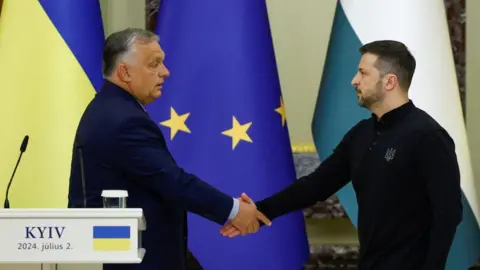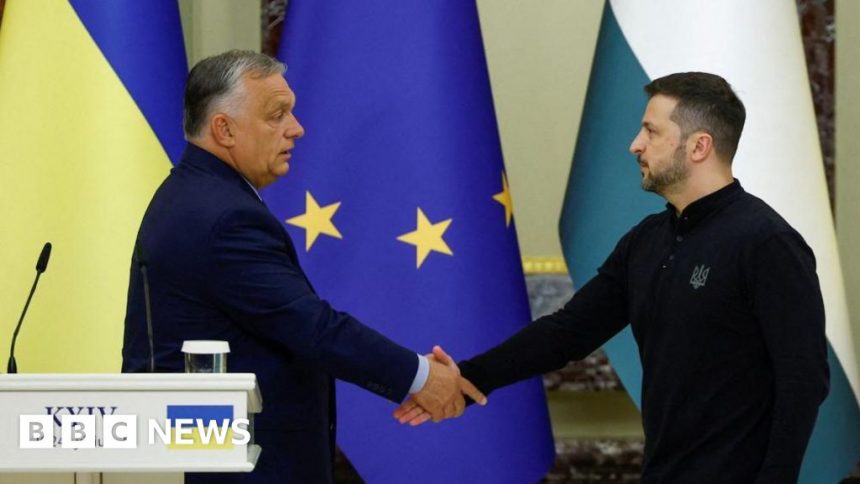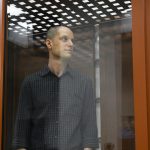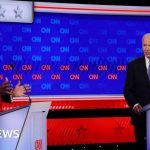Hungary’s Orban urges ceasefire on Kyiv visit
 Reuters
ReutersViktor Orban arrived in Ukraine on Tuesday for an unannounced visit having just taken over as rotating president of the European Union.
While in Kyiv, the Hungarian prime minister said a ceasefire between Russia and Ukraine could speed up negotiations to end the war that has followed Russia’s full-scale invasion in 2022.
Mr Orban has been a critic of Western support for Ukraine and is seen as the European leader closest to Russian President Vladimir Putin. This was his first visit to Ukraine in 12 years, although he has met Mr Putin repeatedly during that time.
During his joint appearance with Ukrainian President Volodymyr Zelensky the body language between them was not warm and neither took questions from the media after they gave their statements.
Mr Orban has previously slowed agreement on a €50bn ($54bn; £42bn) EU aid package designed to support Ukraine in its defence against Russia.
But for the next six months his position as head of the European Council means he has an influential role as a figurehead for Europe. He came to Ukraine on his second day in that role for discussions, saying there was a need to solve previous disagreements and focus on the future.
In his statement following their meeting, Mr Zelensky said it was “very important to have Europe’s support for Ukraine maintained at sufficient level… it’s important for cooperation between all the neighbours in Europe to become more meaningful and mutually beneficial”.
In his own statement, Mr Orban stressed the need to work together but also said he had raised the idea of a ceasefire to hasten negotiations with Russia.
“I explored this possibility with the president and I am grateful for his honest answers and negotiation,” he said.
President Zelensky did not respond to those comments.
However, many Ukrainians believe such a ceasefire would simply cement Russia’s hold over territory it has taken from Ukraine and, if negotiations were to take place, they would prefer them to be conducted from a position of strength rather than on the back foot.
Ukraine’s Foreign Minister Dmytro Kuleba said his country was open to “work with everyone and solve problems”.
“This work is difficult and time-consuming, but it eventually yields tangible results,” he told the BBC.
“During the visit, President Zelensky had a candid but constructive discussion with Prime Minister Orban about ways to achieve a just peace, not simply a ceasefire or peace talks.”
The two leaders also discussed bilateral issues including the 100,000 ethnic Hungarians who reside in Ukraine.
The EU opened membership talks for Ukraine the week before Hungary assumed the EU Council Presidency.







